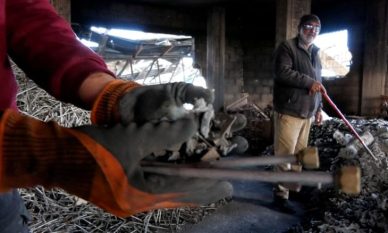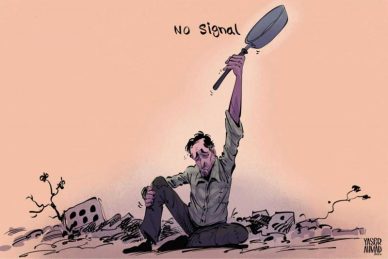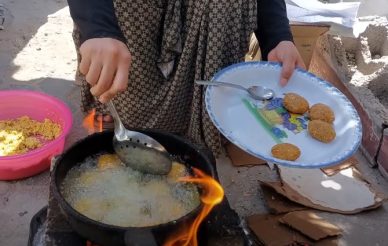GAZA, (PIC)
Fridays in the Gaza Strip are no longer what they used to be; a day people awaited for rest, family gatherings, visits, and the delicious food cooked with love. Today, Friday has become a new burden added to the shoulders of the poor, a reminder of what was, and a warning of what will not be.
On Friday morning, a reporter from the Palestinian Information Center wandered through the alleys and market, saying: “I searched for the smell of grilling or even a glimmer of joy, but found only silence, weary faces, and empty pockets. The stalls were bare except for a little; everyone was looking, few were buying, and most were just asking.”
A seventy-year-old man whispers to a vendor: “How much is the chicken today?” The other replies: “Eighty.” The old man sighs and says: “We used to buy two, today we can’t afford even half of one.” He walks away with a pain in his eyes that cannot be expressed, and disappointment accompanying his heavy steps.
Nearby, a mother of five stands, counting coins in her hand as if searching for a miracle. Her eyes are lost, looking at the vegetables and then at her children, choosing the cheapest and most filling options. She says: “I no longer count dishes, but bites… any food that fills the stomach and that’s it.”
Even lentils, once considered a refuge for the poor, have become expensive; oil, sugar, rice—everything is now bought with a heavy breath. Some have replaced meat with bread, while others have replaced bread with patience.
In the market, no voice rises above the sound of rising prices; no conversation begins without starting with “In the past, we used to buy…” and ending with “Will we eat today?” People are tired, and faces have begun to look alike: pale, exhausted, and hanging in anticipation of relief that does not come.
Friday, which was once a small holiday, has turned into a memory of the past; no meat, no chicken, no table gathering loved ones around it. Just heavy silence, pain dressed in dignity, and hearts trembling in fear of tomorrow.
One person said: “I no longer miss Friday because my pain renews with it. It reminds me of what I don’t have, and what I can’t provide for my children.” Few words, but they carry the whole story.
In this forgotten corner of the world, hunger is no longer an emergency; it has become a permanent reality. Poverty is not just in pockets, but in souls, in children’s gazes, in mothers’ despair, and in fathers’ inability to say: “Today we will eat.”














